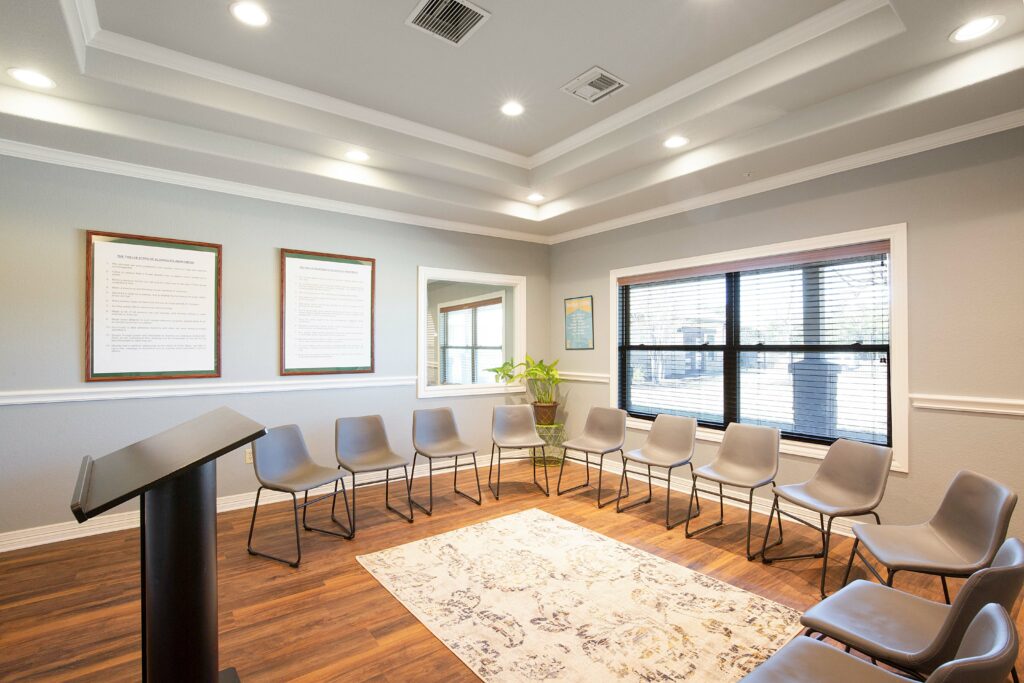It has been said that good physicians treat the disease, but great physicians treat the patient. In other words, great healthcare involves taking the time to understand a patient’s unique circumstances before prescribing treatment.
Infinite Recovery, a holistic wellness center in Austin, Texas, that offers a full continuum of care and mental health treatment to those dealing with addiction understands that well. Clients at Infinite receive treatment that is custom-tailored to meet their unique needs.
“It is never one-size-fits-all when it comes to addiction treatment,” explains Robin Lindeman, Executive Director of Infinite Recovery. “Everyone is so unique in their journey. We make sure we understand our clients’ histories, experiences, and trauma so that we know how to serve them best. We’re treating the uniqueness of each individual.”
Infinite Recovery was founded nearly a decade ago by Michael Dadashi after he received recovery treatment for substance abuse. To help others overcome their addictions, Michael launched a small outpatient night group. That quickly grew as Michael’s passion and his unique approach to recovery began to have a positive impact. In 2017, Infinite opened its first detox and residential property. In 2019, it opened Hacienda San Gabriel, a 95-acre residential ranch where those struggling with addiction can get centered, healed, and connected with their true purpose.
“We know that substance abuse goes far beyond a chemical addiction,” explains Michael. “Deep trauma and shame are often the driving factors. That’s why we don’t rely on traditional ‘get dry’ treatment. Instead, we create proactive environments with teams who have shared experiences and understand that the path to recovery differs for each person.”
Infinite’s custom-tailored approach to recovery focuses on what it calls the “8 Dimensions of Infinite Wellness.” These dimensions — which include emotional, spiritual, intellectual, physical, environmental, financial, occupational, and social wellness — were originally defined by the US Substance Abuse and Mental Health Services Administration (SAMHSA). Established within the Department of Health and Human Services in 1992, SAMHSA is focused on reducing the impact of substance abuse and mental illness on American communities.
“Our treatment curriculum touches on all of SAMHSA’s dimensions of wellness,” Robin says. “By addressing wellness as a whole with comprehensive programs tailored to the client’s unique needs, we do everything possible to help them recover from their addiction and live a fulfilled, purposeful, healthy life.”
“Social Wellness” is one example of the dimensions of wellness that Infinite Recovery addresses. Addiction often leads to a lifestyle in which social activity feeds addictive behavior. Furthermore, addiction often destroys relationships with those who can provide recovery support. Infinite’s program helps to repair important relationships, provides a strong support system, and guides clients into a social life that encourages sobriety.
“Financial Wellness” is another area that is critical to recovery. Addiction often results in a lifestyle that is financially insecure. When clients become financially healthy, they are in a much better position to withstand the triggers that can lead to a relapse. Infinite Recovery provides its clients with financial counselors who can help to map out a plan for achieving financial stability.
Infinite uses the term “holistic” to describe its approach to addiction treatment. Rather than limiting itself to addressing the physical or psychological aspects of the disease, Infinite treats the whole person — mind, body, and spirit. A holistic approach allows for new, life-changing practices to be incorporated into every area of a client’s life, empowering clients to navigate life’s challenges better and maintain their sobriety.
Can Play Sports Help People With ADHD? (Opens in a new browser tab)
“Our approach to recovery allows clients not just to get sober but get better all around,” Michael explains. “Our work empowers our clients to live fulfilling and service-driven lives so that they can get sober and stay sober with a purpose.”
